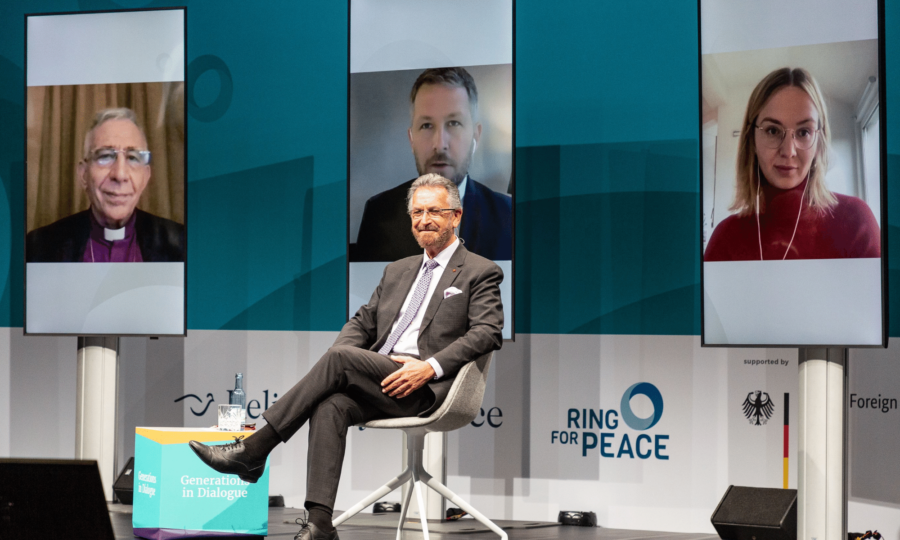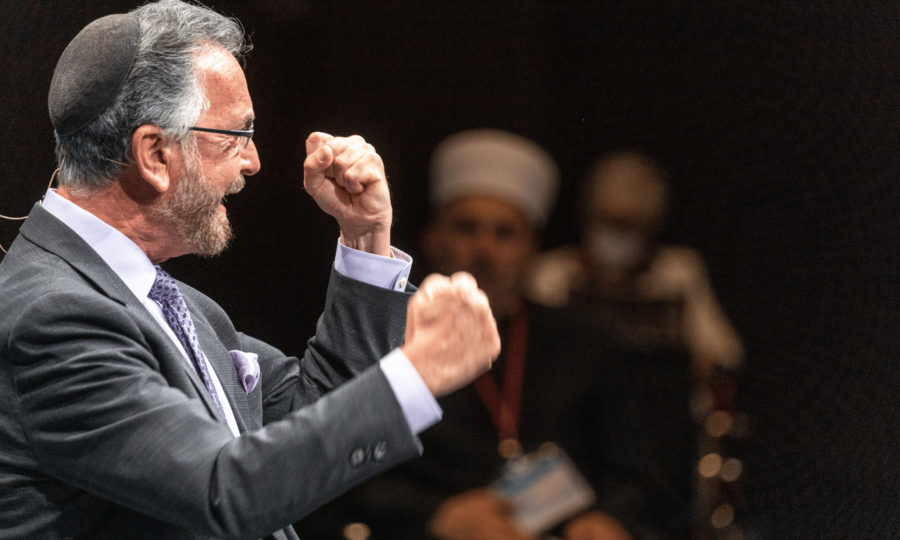A Peace-Building Heart Talk
20211005Mr. Thomas Sparrow, Political Correspondent, Deutsche Welle interviewed Chief Rabbi David Rosen, International Director, Department of Interreligious Affairs, American Jewish Committee; Co-President, Religions for Peace, Bishop Dr. Munib Younan, Bishop Emeritus of the Evangelical Lutheran Church in Jordan and the Holy Land; Honorary President, Religions for Peace, and Ms. Kristina Lunz, Co-Founder and Co-Executive Director of the Centre for Feminist Foreign Policy in the Heart Talk on Peacebuilding.

This session set the tone for the topic of Day 2, Peacebuilding. Bishop Dr. Munib Younan spoke about how religious traditions have the key tenets of peacebuilding within their religious texts and teachings. He warned that peacebuilding initiated by perpetrators of conflict creates a power differential that makes true reconciliation difficult. Religious leaders must be involved in the peacebuilding process to promote the listening and acceptance that facilitates true peacebuilding.
Ms. Kristina Lunz brought the fascinating perspective of feminist foreign policy in ensuring peace. While traditional patriarchal foreign policy emphasizes militarization, feminist foreign policy aims to address intersectional issues of oppression and invest in peacebuilding and human rights promotion as a way to promote security and build peace. Ms. Lunz also spoke about the historical tension between the feminist movement and religious communities, which can be antithetical to peacebuilding and must be addressed.

Chief Rabbi David Rosen reiterated the principles present in religious texts that promote the idea of acceptance and peace, and acknowledged that these values can be misunderstood to instead justify stigma and oppression. He suggests that recognizing the humanity in those who have done you harm, or in those you have oppressed, helps to affirm the value in the other and promotes empathy. Religious leaders should always be peacemakers, but it is not useful to ignore the political dimensions or the harm done in the name of religions.
Religious extremism must be addressed through the promotion of religious leaders that speak strongly for the dignity of humanity and in human rights. Defending human rights is difficult without religious actors, but human rights are also violated by religious leaders. It is important to find the many religious communities that are interested in protecting human rights, but not to ignore the harms that religious communities have caused. This tension and history of oppression must be addressed in order to truly build peace.
You can watch the entire discussion on how to promote the rights of women, the order in which peace or justice can be achieved, and how to address and reckon with the harms of religion here.